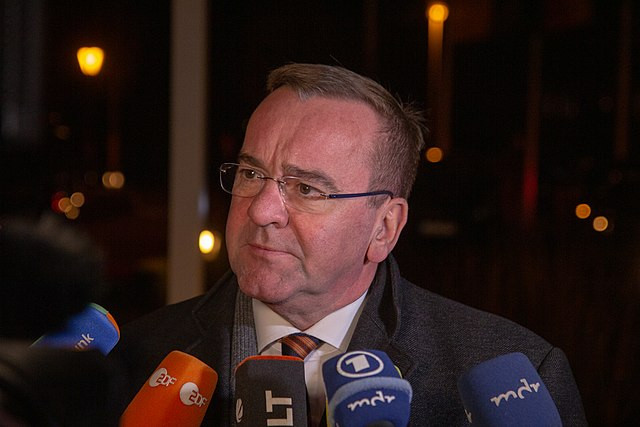Germany's Defense Minister Boris Pistorius has labeled the recent leak of a private conversation among senior German military officials by Russian state media as an act of "information war" by Russia against the West. The leaked audio, which surfaced on Russian social media platforms, captured discussions on the potential support for Ukraine, including the deployment of German-made Taurus missiles, amidst the backdrop of the funeral of late opposition politician Alexei Navalny.
Pistorius, addressing the media in Berlin, underscored the strategic timing and intent behind the leak, suggesting it was a calculated move by Russian President Vladimir Putin to sow discord and undermine unity within Germany and its allies. "It is a hybrid attack aimed at disinformation. It is about division. It is about undermining our resolve," Pistorius remarked, emphasizing the need for a measured yet firm response to such provocations.
The contentious 38-minute recording has sparked a debate within Germany regarding the provision of Taurus missiles to Ukraine, a topic that has seen divergent views within the German government and its conservative opposition. Chancellor Olaf Scholz has expressed reservations about sending the missiles to Ukraine, citing concerns over escalating Germany's involvement in the conflict, a stance that has not only strained relations within his coalition but also attracted criticism for potentially holding back crucial military aid to Ukraine.
The discussions in the leaked audio also touched upon the long-range missiles supplied to Kyiv by France and Britain, further highlighting the international dimensions of military support for Ukraine. Pistorius pointed out the broader implications of the leak, stating, "This is clearly about undermining our unity," and reaffirmed the commitment to supporting Ukraine while maintaining a cautious stance to avoid direct participation in the war.
The German defense ministry is awaiting the outcome of a military investigation into the leak to determine the appropriate course of action. Meanwhile, the debate over supplying Taurus missiles to Ukraine continues, with Kyiv advocating for the weapons to bolster its defense against the Russian invasion. The Taurus missiles, with a range of up to 500 kilometers (about 300 miles), would significantly enhance Ukraine's military capabilities, a prospect that has been met with caution by Scholz due to the potential for escalating tensions with nuclear-armed Russia.
As the situation unfolds, the international community watches closely, with the actions and decisions of Germany and its allies potentially shaping the course of the conflict in Ukraine. The leak serves as a reminder of the complex web of diplomacy, military strategy, and information warfare that defines the current geopolitical landscape.




